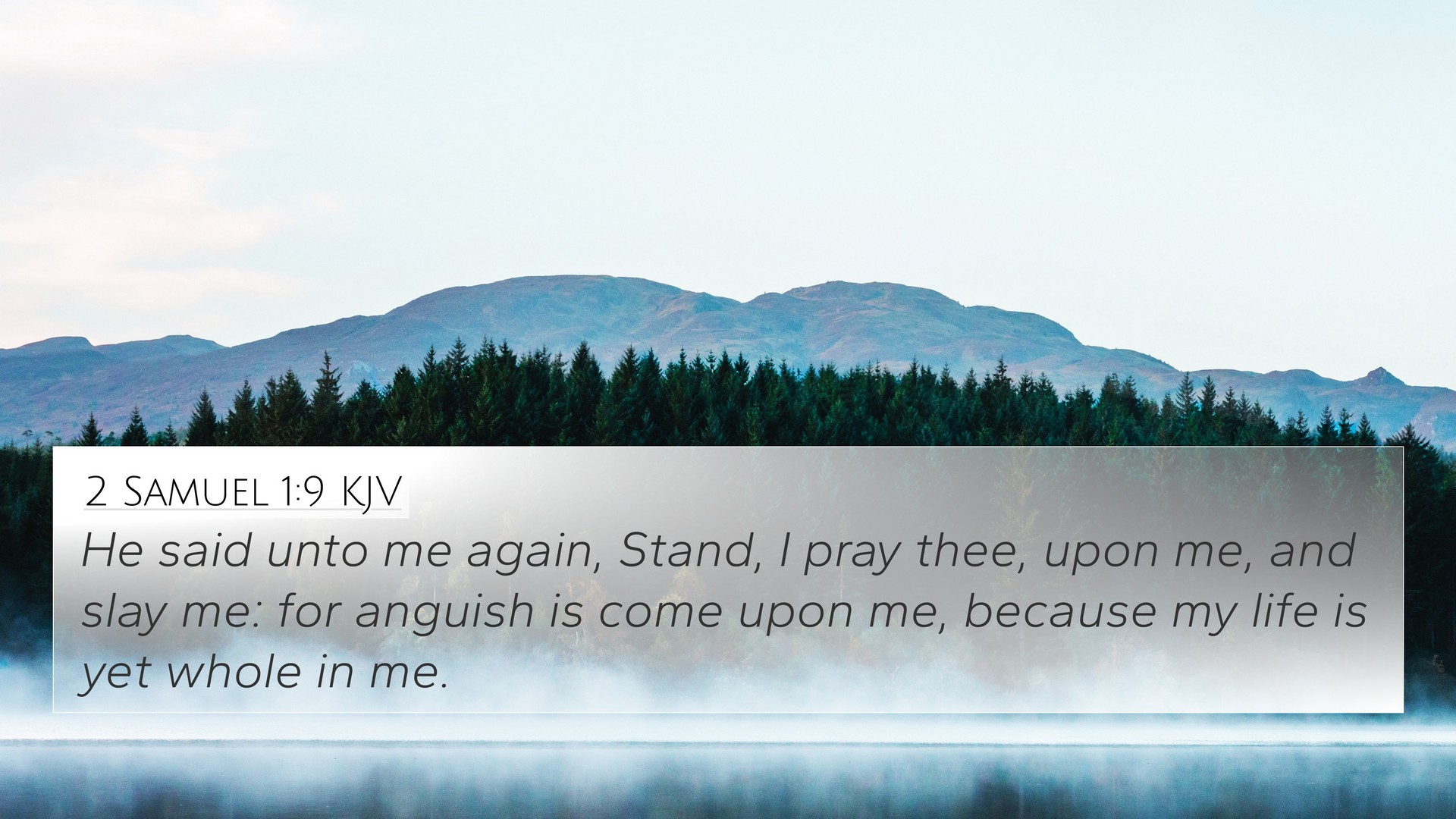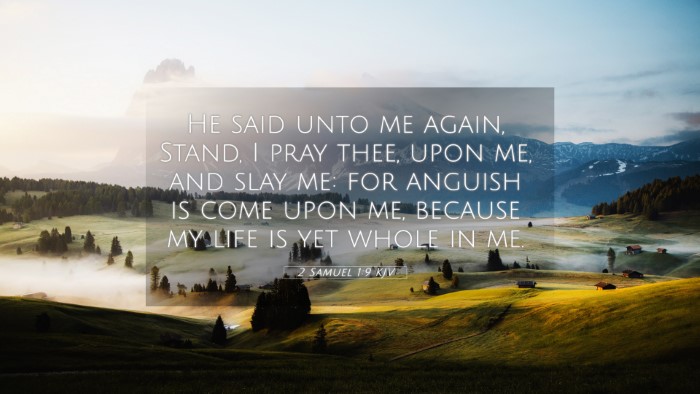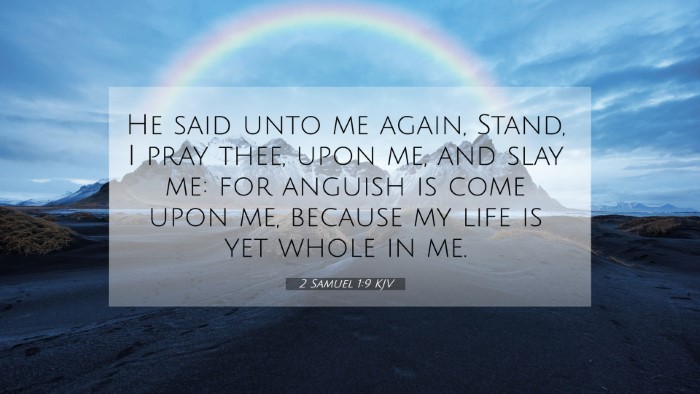Understanding 2 Samuel 1:9
Verse: 2 Samuel 1:9 - “But he said to me, ‘Stand over me and kill me, for anguish has seized me, because my life still lingers in me.’”
This verse captures a poignant moment during David's lament over Saul and Jonathan, revealing themes of despair, mortality, and the sanctity of life. To grasp the significance of this verse, we can draw insights from various public domain commentaries.
Commentary Insights
Matthew Henry's Commentary
Henry explains that this verse illustrates the deep psychological and physical anguish experienced by Saul at the end of his life. The context illustrates not only the desperation which can accompany death but also how sin can lead to despair. Henry emphasizes the tragic outcome of Saul's disobedience to God, highlighting the inevitable consequences one faces when they stray from divine guidance.
Albert Barnes' Notes
Barnes highlights the interaction between David and the Amalekite who claims to have killed Saul. He points out that this desperate act of suicide indicated Saul's utter defeat and hopelessness. Furthermore, Barnes draws attention to the falsehood of the Amalekite's claim, using the verse to illustrate how narratives can be manipulated for personal gain.
Adam Clarke's Commentary
Clarke elaborates on the emotional weight of this moment, noting the cultural implications of such a request. The idea of one’s life lingering signifies not just physical suffering but spiritual and emotional torment as well. Clarke also emphasizes the tragic legacy Saul left behind, foreshadowing the difficulties and divisions that would affect Israel going forward.
Thematic Connections
This verse connects to several deeper themes within the biblical narrative:
- The Sanctity of Life: Saul's plea to be killed raises questions about the value of life and the moral implications surrounding assisted death.
- Despair in Leadership: Saul, once a promising King, illustrates how despair can corrupt leadership and decision-making.
- Consequences of Sin: Saul's downward spiral highlights how disobedience to God can lead to tragic ends.
- Truth and Lies: The conflicting narratives around Saul’s death reveal the complexities of truth in the biblical accounts.
- The Fragility of Human Life: The physical and existential pain portrayed mirrors human struggles across generations.
Cross-References
For a comprehensive understanding, we can explore several biblical cross-references that relate to this verse:
- 1 Samuel 31:4: Saul's death as a result of his own actions, leading to his tragic ending.
- 1 Chronicles 10:4: A parallel account of Saul’s final moments, emphasizing the consequences of his disobedience.
- 2 Samuel 1:1-16: The larger narrative of David mourning Saul and the implications of his death.
- Job 30:17: A reflection on anguish and despair, especially in the face of suffering.
- Psalms 55:4-5: A prayer reflecting deep emotional distress similar to Saul's anguish.
- Lamentations 3:19-20: Mourning and remembrance of suffering align with Saul's final plea.
- Hebrews 9:27: The inevitability of death and judgment resonates with Saul's ultimate fate.
- Ecclesiastes 3:2: There is a time to die, reminding us of the appointed nature of life and death.
- Matthew 10:39: Losing one’s life for Christ's sake may have a different connotation but mirrors the desperation felt by Saul.
- Revelation 21:4: The promise that God will wipe away every tear and death will not exist, contrasting with Saul's anguish.
Conclusion:
2 Samuel 1:9 is a multi-faceted verse that encapsulates despair, the implications of leadership choices, and the grave consequences of sin. By cross-referencing with other biblical texts, one can observe a comprehensive tapestry of themes that speak to the tragedy of a life led away from God.
This exploration not only provides a deeper understanding of 2 Samuel 1:9 but also encourages readers to engage in their own Bible verse cross-referencing journeys, seeking connections that enhance their comprehension of the Scriptures.


